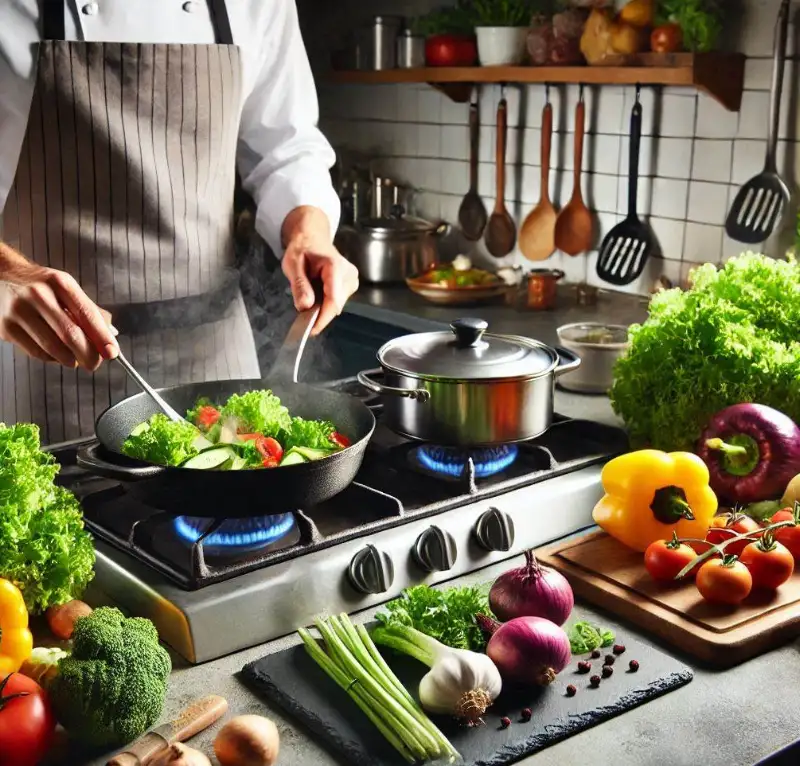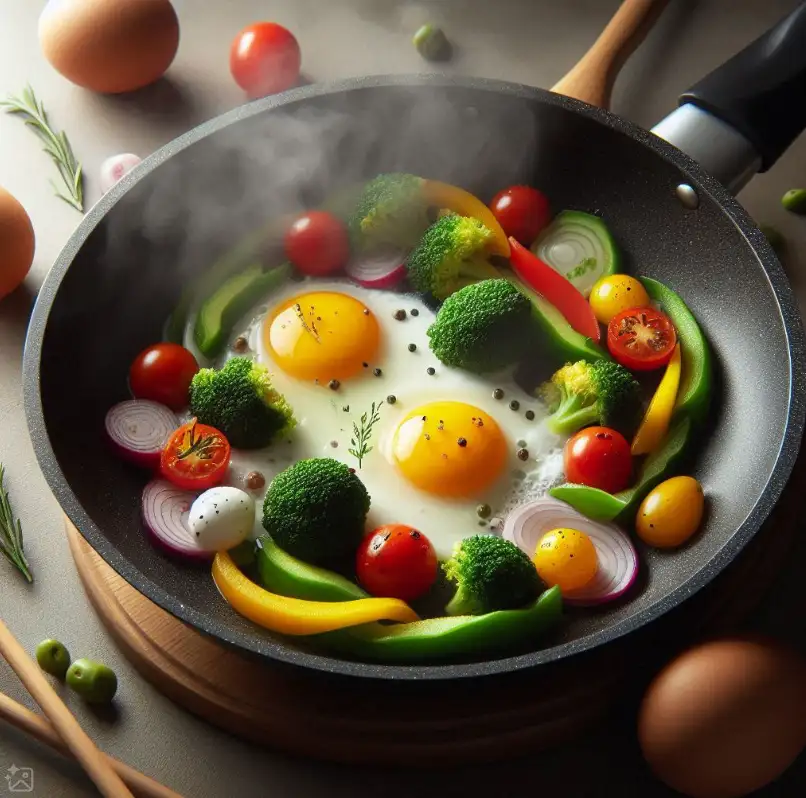Understanding Teflon and Its Risks
Teflon, the brand name for polytetrafluoroethylene (PTFE), is widely used for its nonstick properties.
While cookware made after 2013 is free from harmful perfluorooctanoic acid (PFOA), PTFE still poses potential risks:
- Polymer Fume Fever: Overheating Teflon pans (above 500°F) can release fumes that cause flu-like symptoms, including chills, fever, and muscle aches. These symptoms are temporary but can be severe.
- Environmental Concerns: PTFE is a “forever chemical,” taking decades or centuries to break down, raising concerns about long-term ecological harm.
What Makes Cookware Non-Toxic?
Non-toxic cookware should be free from harmful chemicals like PFOA and PTFE.
It should also withstand high temperatures without releasing toxic fumes or leaching chemicals into food.
Here are the best 100% non-toxic alternatives:
1. Ceramic Cookware

Ceramic-coated pans are a popular alternative to Teflon. They offer a smooth, nonstick surface without harmful chemicals.
- Pros: Free from PTFE and PFOA, easy to clean, and aesthetically pleasing.
- Cons: Susceptible to chipping and may lose nonstick properties over time.
- Top Brands: Caraway, GreenPan, and The Always Pan.
2. Cast Iron
Cast iron pans develop a natural nonstick patina over time with proper seasoning. They are durable and versatile, perfect for high-heat cooking.
- Pros: Long-lasting, naturally nonstick, and adds iron to food.
- Cons: Heavy and requires maintenance to prevent rust.
- Top Brands: Lodge, Le Creuset.
3. Carbon Steel
Carbon steel is similar to cast iron but lighter and quicker to heat.
- Pros: Natural nonstick surface with seasoning, professional-grade performance.
- Cons: Requires regular care to avoid rust and maintain nonstick properties.
- Top Brands: Made In, Matfer Bourgeat.
4. Stainless Steel
Stainless steel is a staple in professional kitchens due to its durability and safety.
- Pros: Free from coatings, resistant to scratches, and versatile.
- Cons: Not nonstick, may require oil or butter to prevent sticking.
- Top Brands: All-Clad, Cuisinart.
Tips for Choosing and Maintaining Non-Toxic Cookware
- Avoid Overheating: Even non-toxic materials can degrade at extreme temperatures.
- Check Labels: Look for certifications like “PFOA-free” and “PTFE-free.”
- Proper Care: Season cast iron and carbon steel, and avoid metal utensils on ceramic coatings.
Why Switch from Teflon?
Switching to safer cookware reduces exposure to potentially harmful chemicals and ensures peace of mind when cooking for your family.
With high-quality non-toxic options now widely available, there’s no need to compromise on performance or safety.
Final Thoughts
When asking, What cookware is 100% non-toxic? consider materials like ceramic, cast iron, carbon steel, and stainless steel.
These options provide peace of mind, superior cooking performance, and sustainability.
By making the switch, you can enjoy your favorite meals without the worry of toxic fumes or chemicals.

